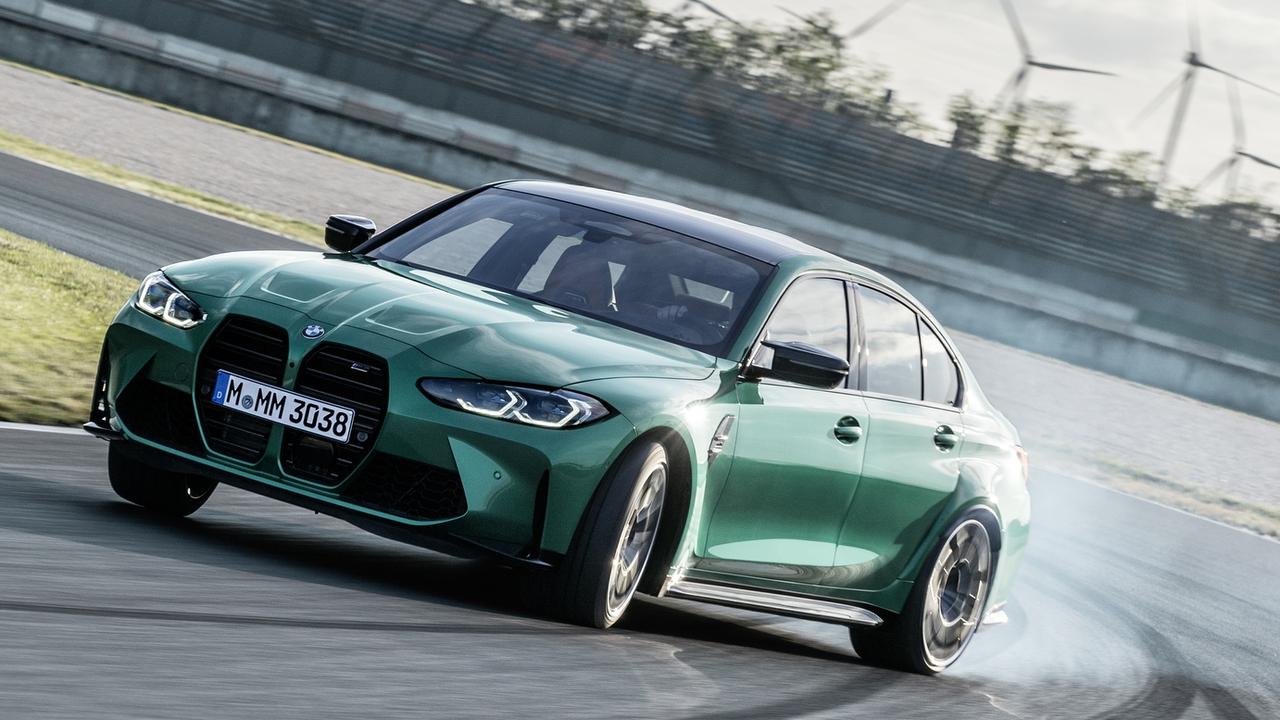How Hyundai plans to take over the world
This company took on the Japanese and won, and now this upstart is attempting to beat the Germans at their own luxury game.
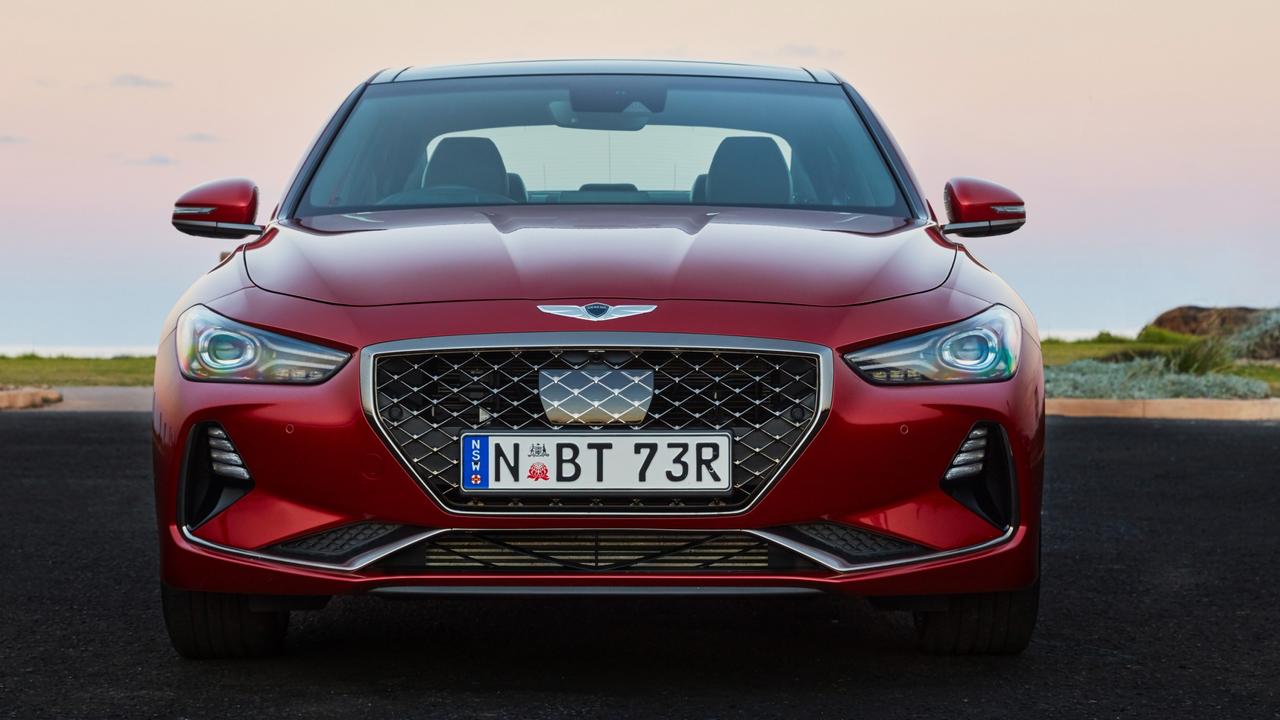
Genesis is the prestige offshoot of the Hyundai brand in the same way Toyota has Lexus and Nissan has — or had — Infiniti. Just look at the departing Infiniti to see how hard it is to carve out a piece of the prestige market.
Genesis plans to have a crack at it with two self-imposed handicaps: there is just one dealership, in Sydney, until next year; and the company has vowed not to negotiate on the sticker price.
Good luck with that … the intent is obviously to keep resale values high but it also means sales staff have no “wriggle room” to negotiate prices with potential buyers.
Given this year’s sales downturn, even the prestige marques are happy to do deals right now … especially if that involves stopping a new player from getting a foothold.
Hyundai knows how to play the long game, so expect to see Genesis around for some time. Its coming SUV will increase immensely the number of buyers cross-shopping the badge.
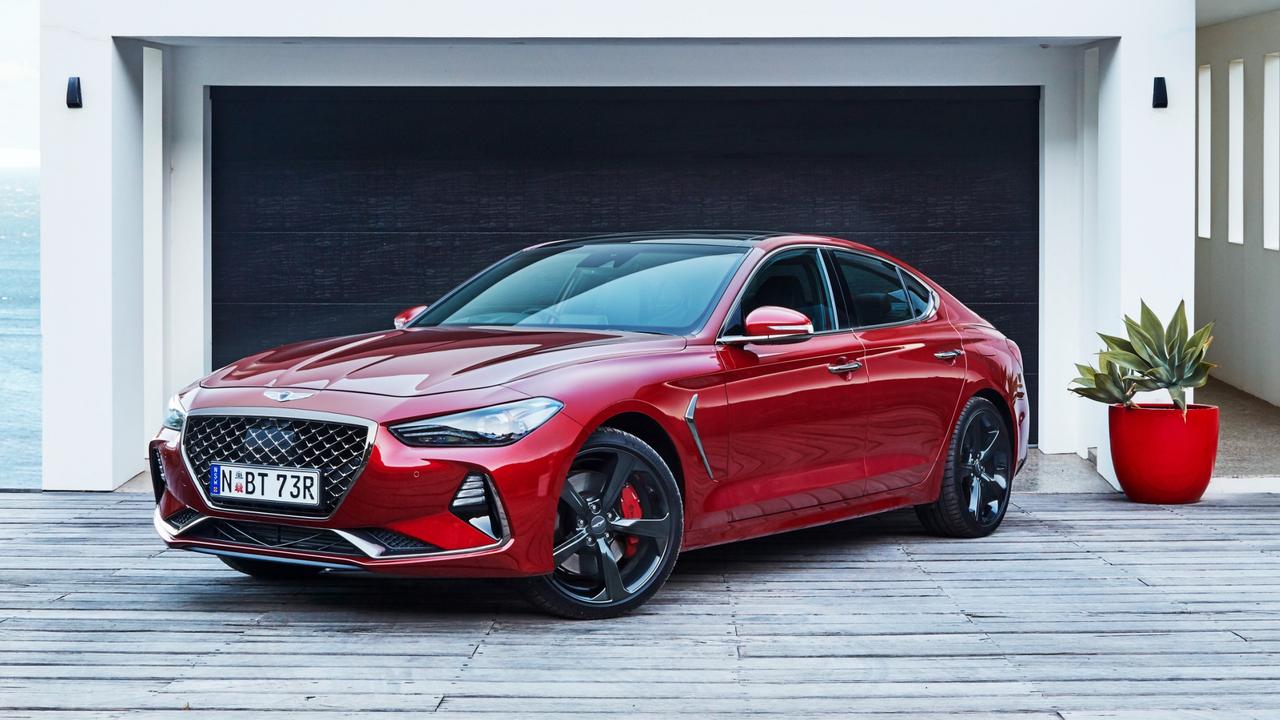
Value
Three trim levels and two engines spread the G70’s price from $59,300 to $79,950 plus on-roads.
That makes the base car about $5000 cheaper than comparable German rivals, while it is on a par with the Lexus IS300 and $4000 dearer than the now departed Infiniti Q50.
We’re testing the bigger-engined 3.3T versions, which start at $72,450 and are pitched at the likes of the top-spec Lexus IS350, at $83,142. German rivals include the Audi S4 ($98,882), BMW M340i ($99,000) and Mercedes-AMG C43 ($108,240).
To sweeten the deal, all G70s come with free servicing for the first five years/50,000km. For owners in capital cities, a concierge picks up and returns cars to home or office.
The entry Sport spec, as anticipated in a new luxury contender, is designed to impress.
In addition to eight-inch infotainment display with satnav, seven-inch digital driver’s display nestled between a pair of analog dials, digital audio, smartphone mirroring and wireless phone charging, there are power/heated front seats, adaptive suspension, Brembo brakes, 19-inch alloy wheels, mechanical limited-slip differential and hands-free boot operation.
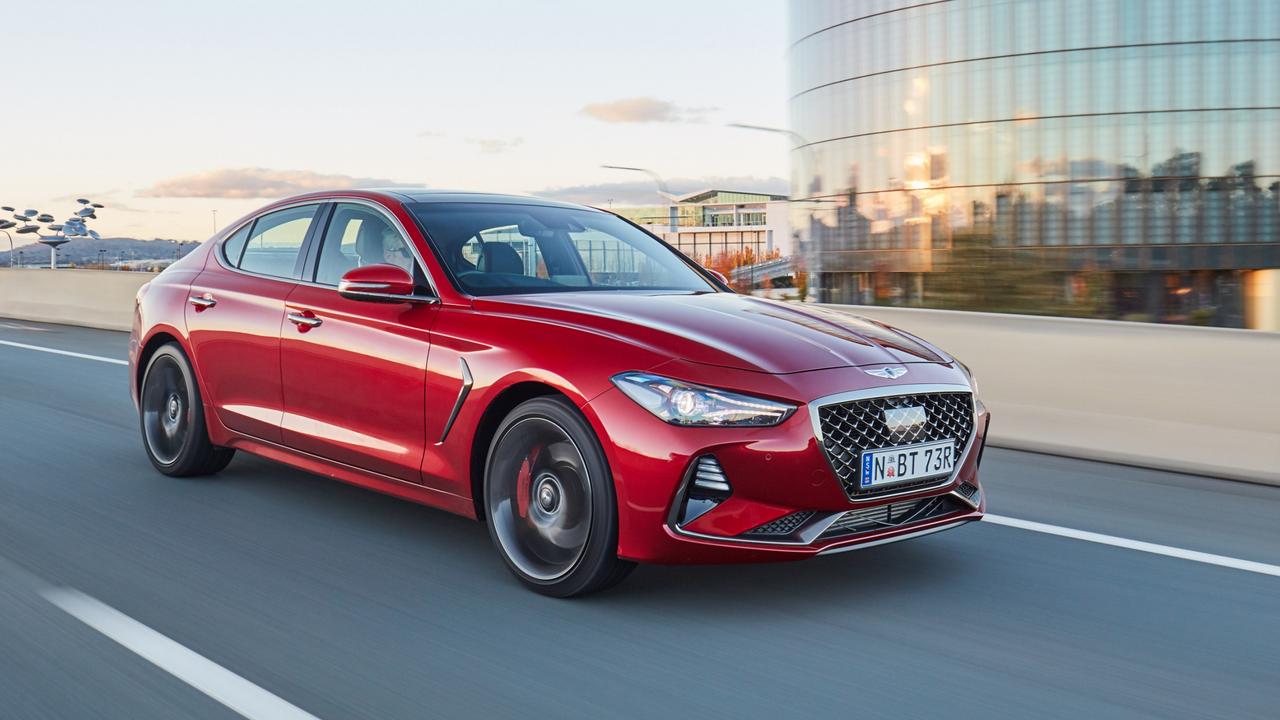
Step up to the Ultimate or Ultimate Sport (some car, different wheels and trim finish) and there’s plusher leather, head-up display, surround-view reversing camera and power steering column adjustment. The front pews gain ventilation, the outboard rear seats are heated and the speaker count grows from nine to 15.
Comfort
First impressions count and the Genesis G70 looks good inside.
If you own a Hyundai you’ll be familiar with the infotainment interface and the driver’s display but the surfaces within sight are all wrapped in premium plastic and leather. (Some of the switchgear could have done with style and graphics that differ from the mainstream models.)
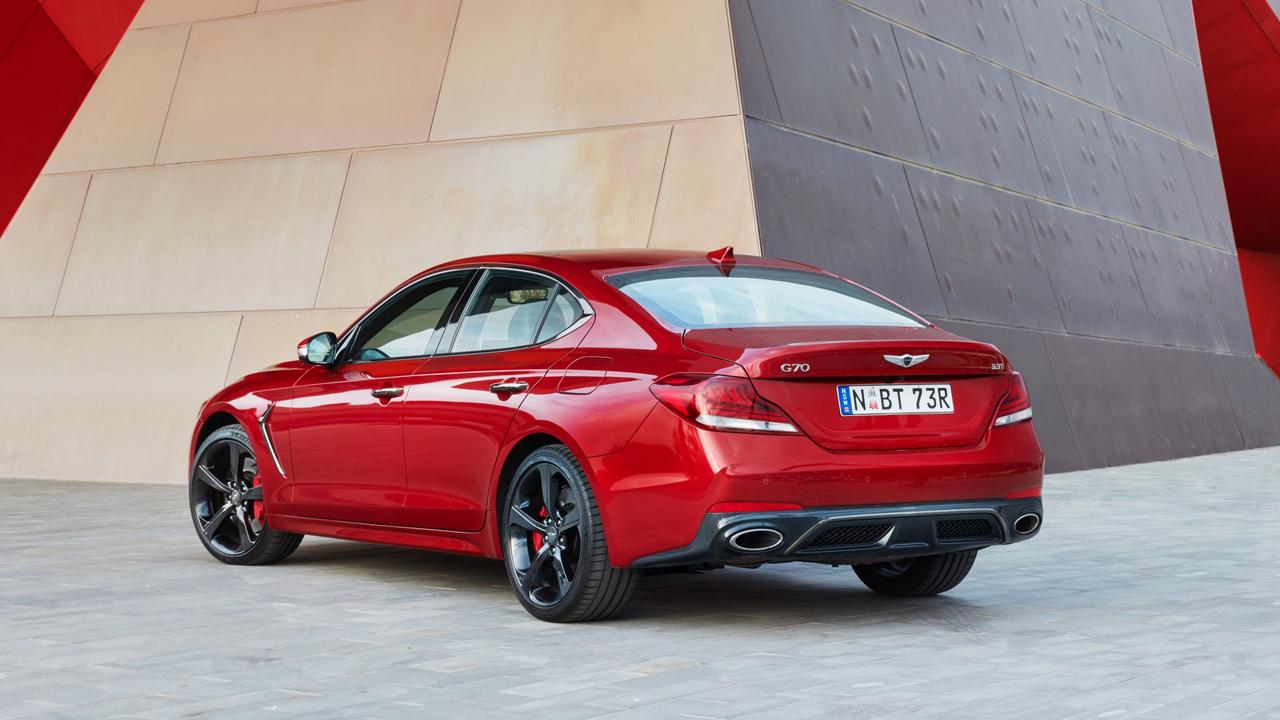
The overall ambience is decidedly prestige, even if the design isn’t cutting-edge. There are some truly thoughtful touches, among them the practical and pretty alloy coat hooks.
Similarly, the quilted seats feel as luxurious as they look and there’s enough power adjustment to fit bodies of all sizes.
The outboard rear seats are just as well padded and shaped, though access is reasonably tight fit taller bodies. The 330L boot is disappointingly small, relative to key rivals.
There’s a touch of tyre roar from the Michelin rubber on out-of-town coarse chip surfaces but it is a fair trade-off for the grip the tyres provide.
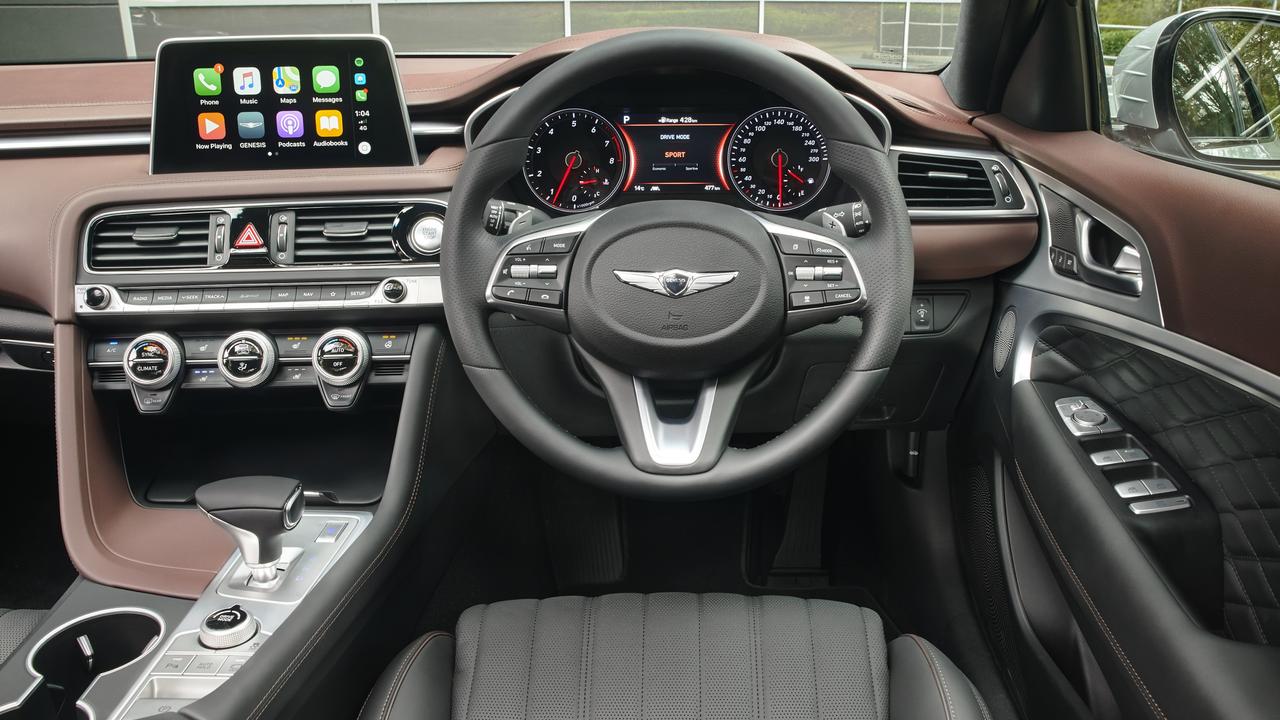
Safety
No problems here. Crash-testing showed the G70 is structurally strong, gaining an adult occupant rating of 81 per cent.
Child occupant protection was rated at 86 per cent, vulnerable road user protection 69 per cent and safety assist technology 81 per cent.
ANCAP’s only real criticisms came over whiplash protection, which was marginal front and rear, and for the autonomous emergency braking’s ability to detect vulnerable road users, which was deemed adequate.
That result was a consequence of a marginal rating for cyclists; pedestrian detection varied from good in daylight to poor in some night scenarios.
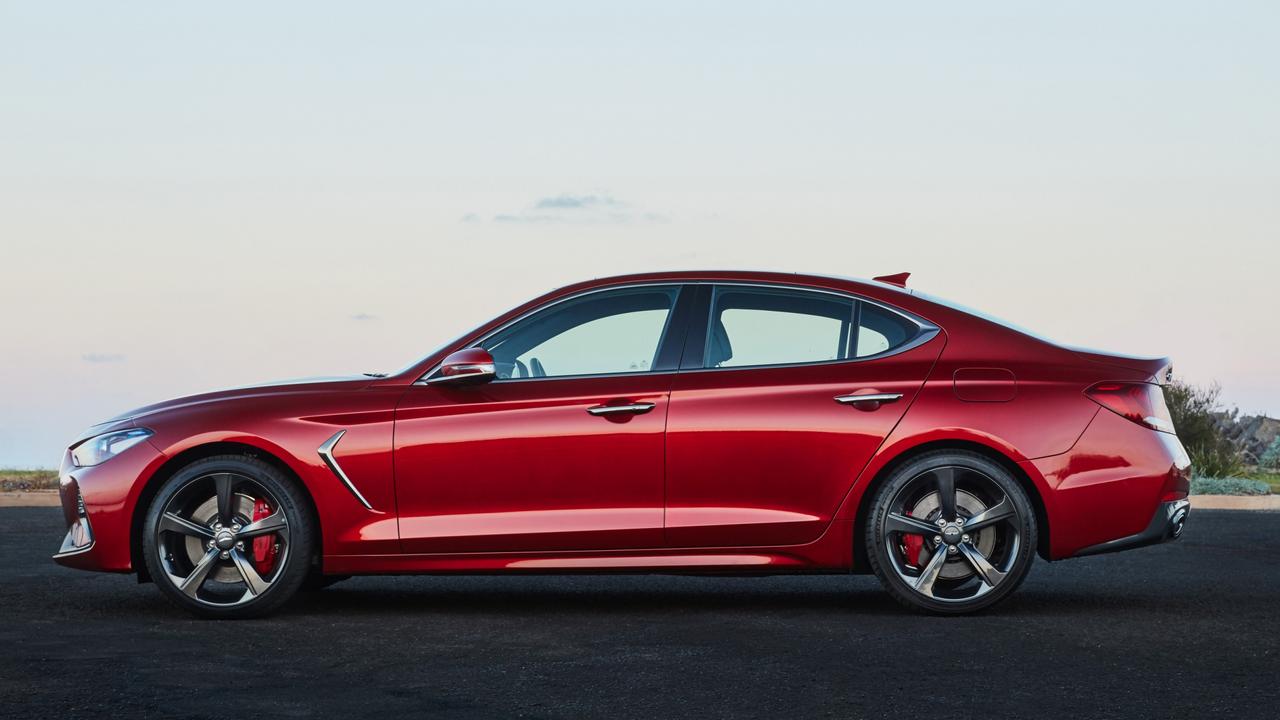
Driving
The G70 has its Japanese luxury rivals covered for ride — the adaptative dampers have a discernible effect as you progress from comfort to sport settings. Subjectively, the preferred drive settings would be comfort for suspension and everything else dialled up.
The Lexus has a bias for outright compliance in all conditions. This serenity-is-sacrosanct approach means there’s more body roll on back roads and the changes to the suspension settings don’t have the same breadth as in the G70.
Local suspension tuning — a project that took about six months to sort out — delivers a ride that is every bit as good as you’d expect in a Euro sedan.
It takes a conga line of corrugations to finally unsettle the G70, a fact that highlights how well the local engineers resolved the suspension. Response to steering, brake or throttle inputs is quick and measured.
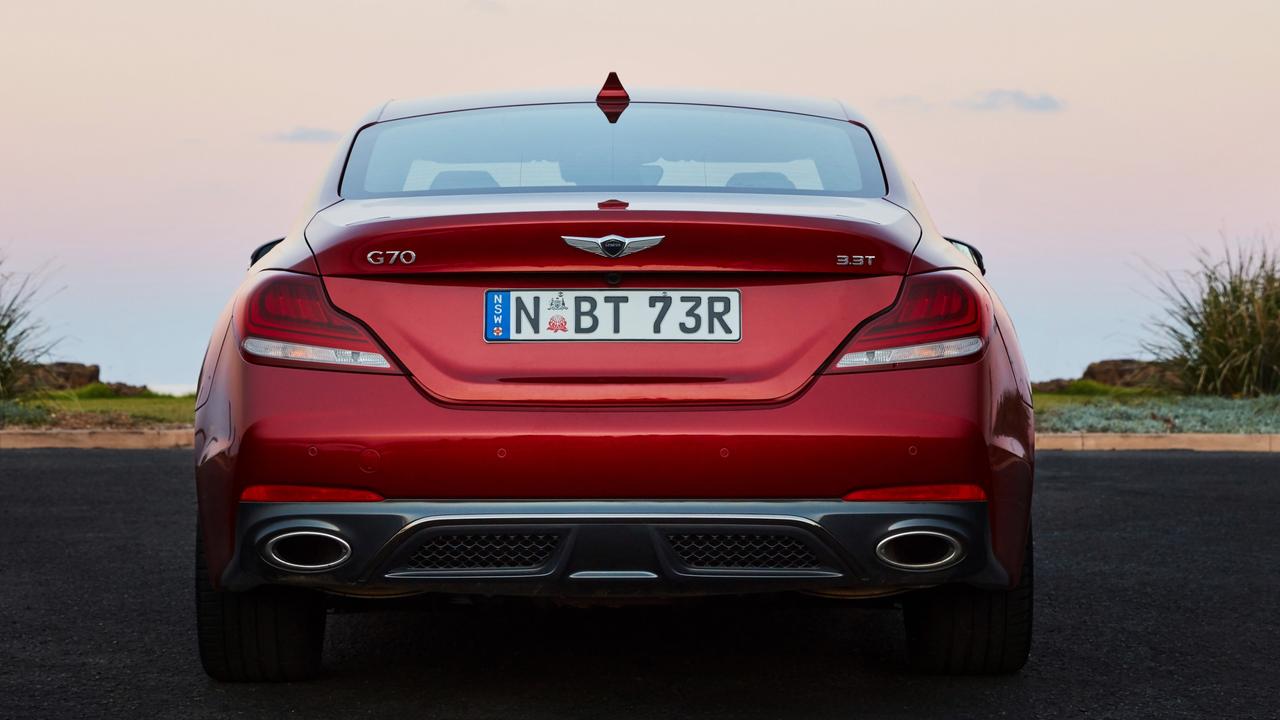
The engine — a 3.3-litre twin-turbo good for 272kW/510Nm — and platform come via the V6 Kia Stinger but the Genesis is lighter and marginally smaller. Dial up the launch mode, slip the brake and, the maker reckons, it takes 4.7 seconds to reach 100km/h.
On country roads, the G70 surges out of turns like a predator on the hunt and the eight-speed auto is generally a good match, though it will slip into higher gears any time it gets the chance, even in sports mode.
That helps with the claimed combined fuel use of 10.2L/100km. If you achieve that in the real world, you bought the wrong car. We saw low 14s and were happy with that.
Head says
Play safe and buy the Lexus IS or stump up the extra for a European badge.
Heart says
If this is the beginning for Genesis, the future looks bright.
Alternatives
Lexus IS350 Sports Luxury $83,142 plus on-roads
Better built and the interior looks bespoke. The Lexus favours comfort over outright cornering.
Mercedes-AMG C43 $108,600 plus on-roads
Considerably more expensive but cabin feels more hi-tech and upmarket. Its 3.0-litre bi-turbo V6 posts the same 0-100km/h time.
Verdict 4/5
As a first effort in the compact prestige segment, the G70 illustrates how much scope there is for the brand. Now it’s a case of how long Genesis takes to realise the potential.
Genesis G70 3.3T Sport
Price: $72,450
Warranty/servicing: 5 years, unlimited km/Free for 5 years/50,000km
Engine: 3.3-litre V6 twin-turbo, 272kW/510Nm
Safety: 5 stars, 7 airbags, AEB, adaptive cruise control, blind spot alert, lane keep assist, rear cross traffic alert
Thirst: 10.2L/100km
Spare: Space-saver
Boot: 330L


